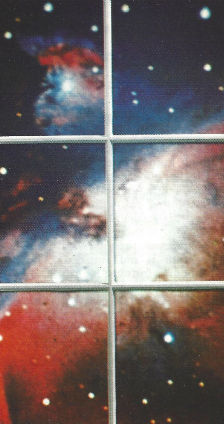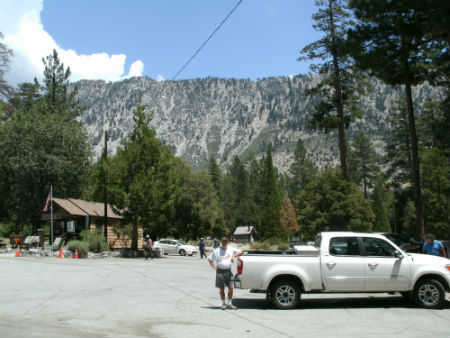St. Paul’s Cosmic Teaser: A ‘New Look’ For the Universe?
By Neil Earle
 The Cosmos Beckons: What is it's Purpose?
The Cosmos Beckons: What is it's Purpose?The best Christian thinkers have consistently called God’s people back to the sublime truth that salvation is not merely singular and personal – as wonderful as that is.
But no! Something more awe-striking is at stake. In his magnificent Letter to the Romans St. Paul touched on the incredible human destiny that both Old and New Testaments have been pointing towards. British Bible teacher John Stott summarized it in a sentence: “Our destiny is to be given new bodies in a new world, both of which will be transfigured with the glory of God” (Romans Commentary, page 253).
Isaiah 66 and Revelation, Chapters 21-22 call this the New Heavens and the New Earth. The future ahead for the cosmos is to be reshaped and renovated, delivered from its present marks of chaos and uncertainty into what Paul called a liberation, “liberated from its bondage to decay and brought into the freedom and glory of the children of God” (Romans 8:21).
Paul’s vision of the creation “groaning in travail” matches NASA advisor Dr. Jennifer Wiseman’s descriptions of a restless universe, stars being newly shaped or misfiring, invisible neutrinos bombarding us from space every second, freakish-like infinitesimal “quarks” doing their strange subatomic dance at the smallest levels. National Geographic writes of a cosmos still in some degree of disorder. Meteors streak into our atmosphere, explosions rend apart whole star systems in the farthest corners of the universe. These are grandiose disasters which we enjoy as fabulously beautiful multi-colored nebulae or patterns of cosmic dust whose dimensions can only be measured by the yardstick of the light year.
The Contingency Factor
Theologians from Thomas Aquinas (d. 1274) to Tom Torrance (d. 2006) have a word for this “awfully good/frighteningly bad” characteristic of the universe. They called it “contingency,” which Torrance went on to define:
 High Sierras: There is a kind of Sermon only a day in Nature can give.
High Sierras: There is a kind of Sermon only a day in Nature can give.“If we are asked what we mean by speaking of events as ‘contingent’ we say ‘they just happen to be like that.’ There is more to it than this, however, for contingent events have an elusive character which we indicate by adding ‘but they did not have to be like that, for they might have been very different.’”
Pressed further, Torrance adds: “We describe it as contingent for it depends on God entirely for its origin and for what it continues to be in its existence and its order…it contains no reason in itself why it should be what it is and why it should continue to exist. Indeed God himself was under no necessity to create the universe.”
To dive further into the theological significance of all this Torrance writes: “By contingent order is meant that the orderly universe is not self-sufficient or ultimately self-explaining.” No it isn’t, as legions of scientists, philosophers and theologians have been reasoning with for centuries. But the universe has many features which reflect rationality, reliability and order. It is an order, argues Torrance, “which depends on and reflects God’s own eternal rationality and reliability.”
In other words, there is a depth of understanding to what St. Paul had written in Romans 1:20, “For His invisible attributes, namely, his eternal power and divine nature, have been clearly perceived, ever since the creation of the world, in the things that have been made” (Romans 1:20-21).
You can know a lot about the Creator through the Creation. And it is as Creator that we first meet the God of the Bible.
“In Him was Life”
In Hebrews 1:3 Jesus is portrayed as “sustaining all things by his powerful word.” Incredible as it may seem to some, the One we have heard of as Jesus Christ is consistently revealed as both Creator and Sustainer (Colossians 1:17). First!
An early follower of Jesus put it somewhat poetically: “In the beginning was the Word, and the Word was with God and the Word was God…All things were made through him, and without him was not anything made that was made. In him was life, and the life was the Light of men…He was in the world and the world was made through him yet the world did not know him…and the Word became flesh and dwelt among us” (John 1:1-14).
 The general effect of the Jewish-Christian view of created Nature led to the conviction that “all things were under His feet.”
The general effect of the Jewish-Christian view of created Nature led to the conviction that “all things were under His feet.”Little wonder, then, that so many of the Western world’s best discoverers and scientists have been Christians, from Roger Bacon in the Middle Ages to Einstein’s hero, James Clark Maxwell. And why? Because the general effect of the Jewish-Christian view of created Nature, of grandiose and potent energies inherent in a physical creation which still holds together, led to the conviction that “all things were under His feet,” that the Cosmos benefitted from the creative care and overall guidance of a supra-Intelligent being.
There was/is a “guardian of the galaxy” in that sense. And he is/was Jesus Christ now exalted to God’s right hand. The stupendous powers and contingent forces packed into such invisible entities as the atom, for example, were hemmed in and controlled by principles of Natural Law, so arranged as to be in many cases mathematically measured and thus congenial to human investigations.
In fact, the cosmos is so packed with powers and dynamic forces in its contingent state that some of the milestone advances in science proceed accidentally: Newton’s apple and Watt’s steam engine, the discovery of penicillin and the Big Bang. This view ultimately gave scientists the confidence to proceed with their inquiries based, a confidence based on the rationality and sense of purpose inherent in matter, recalcitrant as it sometimes might be. This was a view often disregarded by the speculative Greeks and overlooked too long by the Christian church.
“The Eager Expectation”
It is indeed a fabulously beautiful and complex universe, even allowing for the cosmic dangers that exist “out there” from marauding asteroids to death rays beyond what science fiction can conceive. In short, it is a cosmos needing to be brought even more fully under the benevolent over-lordship of the Children of God. God endowed the cosmos with a contingent freedom so that unexpected things such as bird migration patterns and forests regenerating after fires and individual choices could take place. But also allows for virgin births, resurrections and God becoming flesh. We can only speculate on what our future assignment will be in the coming refurbishing of the Universe but Paul hints that we will judge angels and that “the creation waits in eager expectation for the children of God to be revealed.”
The Cosmos, said translator J.B. Phillips, is “standing on tiptoe” to see what God and his family will make of it all. This is part of the awe-striking destiny ahead for all who respond to that Gospel message, the chance to participate in making the creation sing together as it once did in the springtime of its origins (Job 38:4-7).
With God’s help, we will be there to see it.